I personally stick to writing things in org-mode with flyspell-mode and langtool...
org-mode is fantastic for typing any sort of document quickly in Emacs, flyspell takes care of spelling, and langtool worries about the grammar. Everything is highly customizable too, so you can customize anything to your heart's content.
Here is a quick little type-up in org-mode with langtool and flyspell enabled; nothing too special.
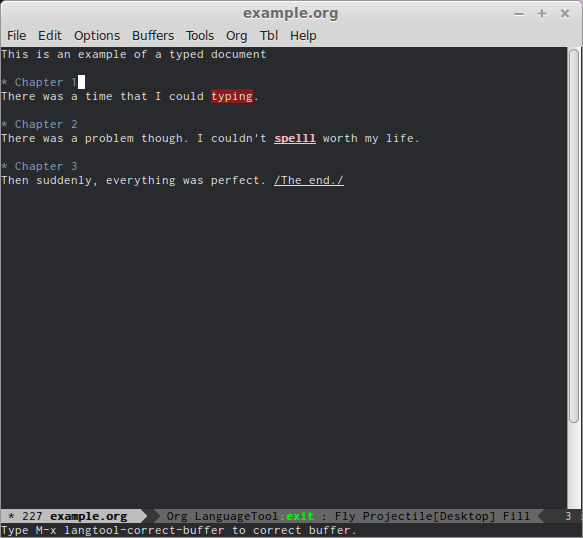
If I run langtool-correct-buffer like it suggests, any grammar errors langtool found are highlighted one by one with a number of suggestions in the bottom buffer. I can select any of these candidates with the corresponding number key, or just skip over them with the [Space bar].
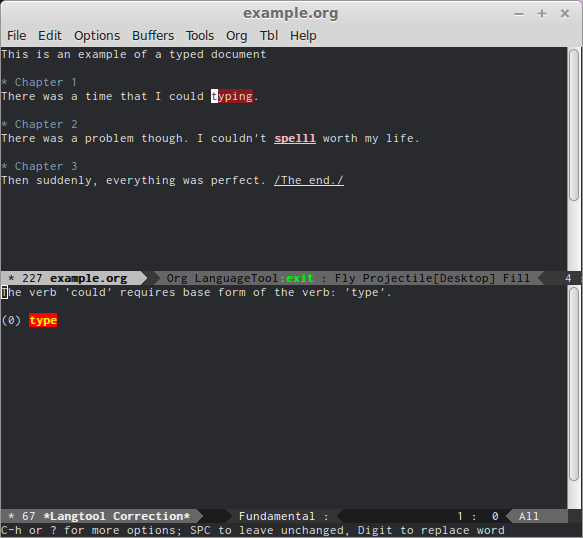
In addition flyspell lets me [Middle Click] on misspelled words to see spelling suggestions.
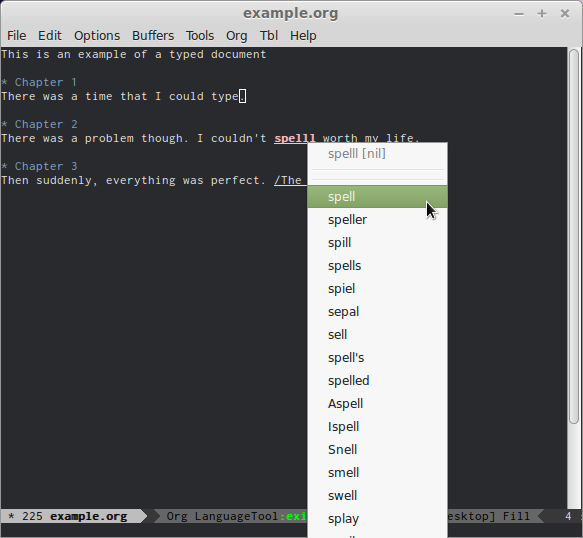
org-mode has a ton of export formats; you can export your document as a PDF, ODT, or even as HTML. (You can export using C-c C-e in org-mode)
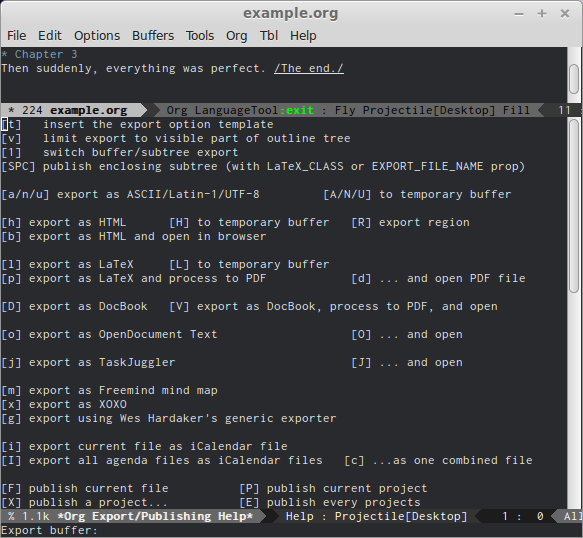
Now that I've published my masterpiece as a PDF using LaTeX, this is what I see when I open it in a PDF viewer...
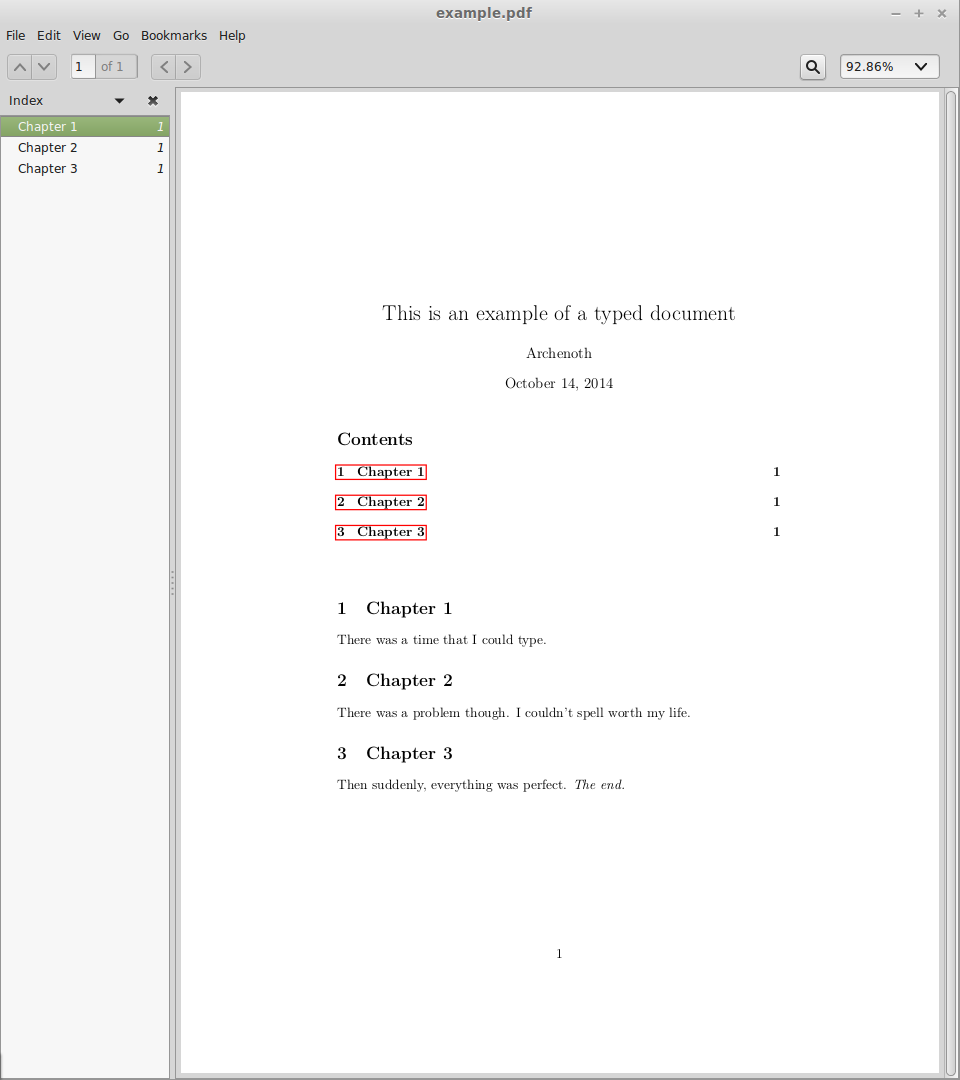
It is probably the easiest way to make fancy-looking documents within a relatively good writing environment in Emacs...
The good news is that org-mode and flyspell-mode are included by default with most versions of Emacs. The bad news is that langtool is not, and it is somewhat large, and it requires Java... But if that doesn't deter you:
Langtool is a grammar checker that is commonly paired with Openoffice or Libreoffice. The tool itself is a simple command line utility, so it is relatively easy to interface with other programs; someone interfaced it with Emacs.
To add it in Emacs, you can install it with M-x package-install langtool...Or, if you don't have the right repos set up (I use the ones suggested here.), you can get the .el file and include it manually from here.
I currently have my org-mode hook set up like this. (Snipping the irrelevant bits.)
(add-hook 'org-mode-hook (lambda ()
(progn
;; Snipped
(auto-fill-mode t)
;; Spelling
(flyspell-mode t)
;; Grammar
(require 'langtool)
(setq langtool-language-tool-jar "/path/to/LanguageTool.jar"))))
Obviously, you would want to replace the /path/to/LanguageTool.jar with the actual path to it on your system. It is a portable .jar file, so the location doesn't really matter.
Also, unlike flyspell-mode, langtool requires you to run M-x langtool-check when you want to grammar check the buffer... So you don't have fancy grammar checking as you type currently.
org-mode can do a ton, and can be used to write simple little notes files, complete essays with fancy graphics, articles, books, you name it... But since it can do so much, it's kind of hard to know where to start. I found it was easiest to learn by starting with the possible ways you can export an org-mode file after you learn the basics.... Org-mode's site is very helpful and informative, and there is a lot of help on it in the info pages too (C-h i, m Org Mode).
Good luck..! And hope this helps.






styleanddiction, and I am vaguely aware of an attempt to reimplement them as open source. If the tools actually work, adding an Emacs wrapper should be a snap.writegood-modeand yanked in the first paragraph of "My Old Man" (from the above link).writegood-modeidentifies "my old man was cut out for a fat guy" as passive, which it is not. These systems a) do not work well and b) are based on bad rules about good writing.